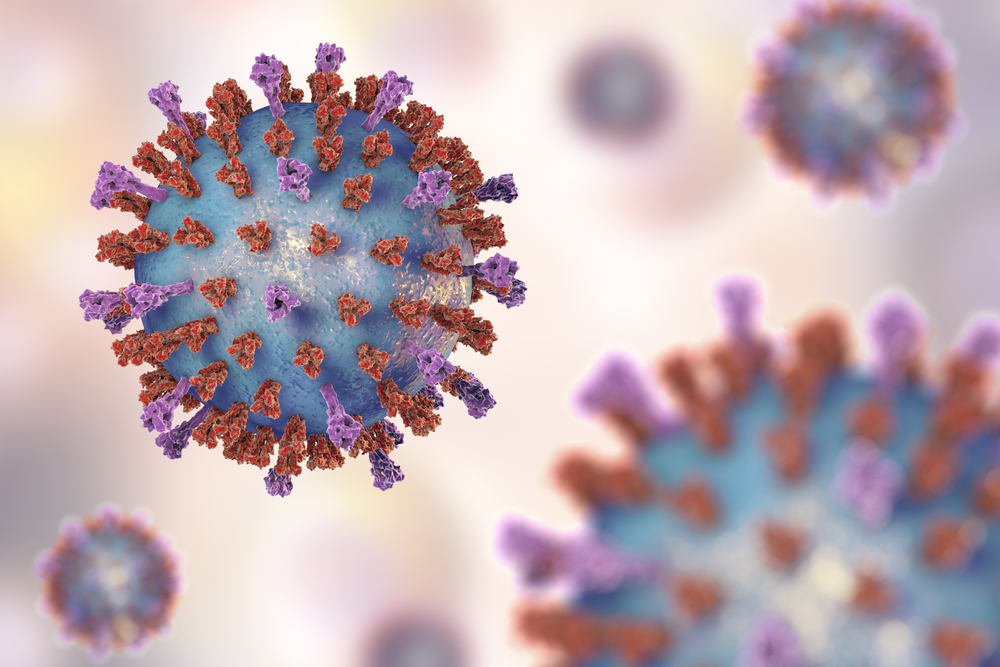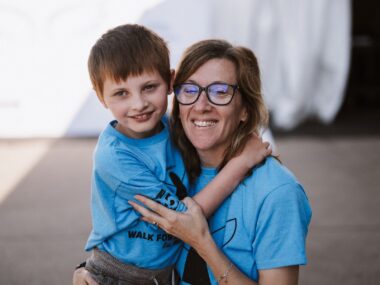Should Dave Open the Refrigerator? RAREwithCOVID Can Help Decide
Written by |

We have a problem: My husband, Dave, is a surgeon. Normally, we are proud that his long hours go toward an undeniably good cause: to save the lives of children with heart defects.
But now, in the middle of the COVID-19 pandemic, Dave’s career is risky because he is the only household member who leaves every day. He heads to the hospital and may be exposed to people there who don’t even know they are carrying the virus. And then he returns home, possibly exposing the rest of us.
This is a double problem because our son has Angelman syndrome, which likely causes an increased risk for COVID-19 pneumonia. But no one really knows for certain.
Nobody knows the causes of mortality in Angelman syndrome because there was no way to keep track of these statistics until the disorder got its own unique ICD-10 code, which is the 10th version of the International Classification of Diseases codes. It seems like a lifetime ago, but it was only 2018, and that is not enough time for the magic new number to enter enough medical records and death certificates so that researchers can dig the information back out again to calculate incidence, prevalence, and causes of morbidity and mortality.
We don’t have time to wait. We already are in the middle of a pandemic, and we need to know if people with Angelman syndrome are getting sicker or dying faster of COVID-19 than anyone else. We need this information to make everyday decisions, such as where Dave should sit at dinner, and serious decisions such as how to apportion ventilators in the ICU.
How can we get information about the risks of COVID-19 for people with Angelman syndrome? We just need to register everyone with Angelman syndrome who received a positive COVID-19 test or who has symptoms, and then keep track of the outcomes and compare them to people with and without other rare disorders. To do that, we just need a giant database, programmers to craft a user-friendly portal, institutional review board approval for permission to gather the information, and a bunch of analysts to sort through the data.
Riiiiight. In the middle of a pandemic.
No problem! A guy in Georgia, Jason Colquitt, has done it. I don’t know what you’ve been doing while staying at home for the last month, but Jason has been using his time in social isolation and his medical software company, Across Healthcare, to create a COVID-19 registry for people with rare diseases.
The RAREwithCOVID registry launched last week, and already it is open to any rare disease patient from anywhere in the world. By filling out a short online survey, participants contribute to understanding the progression of COVID-19 among their own rare disease community compared with the general populace. Also, as a side benefit, participants can connect with researchers running COVID-19 studies.
“I have a passion for the rare disease community, and RAREwithCOVID was a project that I knew we needed to launch quickly, as we were seeing the rapid impact of COVID-19 on the world,” Jason said.
Those creating RAREwithCOVID hope to collaborate with the National Organization for Rare Disorders and Global Genes, and they have added links to COVID resource pages from those groups on the RAREwithCOVID website.
To learn how COVID-19 affects a particular disorder, advocacy groups can arrange information-sharing from RAREwithCOVID. With that information, the next step is to publicize, tweet, post on Instagram and Facebook, make phone calls, and share, share, share. Each group will need to get as many people as possible to register to find out what happens with COVID-19 and their disorder.
Without a systematic registry, “word of mouth” information is incomplete. In private Facebook groups, I have seen posts about people with Angelman syndrome sick with COVID-19 symptoms. At least two patients who were admitted to hospitals surprised everyone by testing negative for the active virus, but neither were tested for antibodies from past exposure.
One adult and one child who were very sick with confirmed COVID-19 have since recovered. And sadly, in March, one young adult with Angelman in Spain, described as a cheerful sweet soul, died from COVID-19.
These cases are the tip of the iceberg. In the coming months, while COVID-19 is still in the aerosols and before a vaccination is manufactured or a medication is approved, we will need to make informed decisions about so many things. Should our children with Angelman syndrome go back to school if and when it restarts? Should we venture out to get their dental work when such things are permitted again? Should we enroll them in clinical trials that involve travel or hospital visits? All of these decisions need to be based on real facts about the risks involved.
And so do the little decisions. Can Dave brazenly waltz right into the kitchen and open the refrigerator with his bare hands without exposing our son to extreme risk? Right now, I think not, but I really don’t know.
***
Note: Angelman Syndrome News is strictly a news and information website about the disease. It does not provide medical advice, diagnosis, or treatment. This content is not intended to be a substitute for professional medical advice, diagnosis, or treatment. Always seek the advice of your physician or other qualified health provider with any questions you may have regarding a medical condition. Never disregard professional medical advice or delay in seeking it because of something you have read on this website. The opinions expressed in this column are not those of Angelman Syndrome News, or its parent company, Bionews Services, and are intended to spark discussion about issues pertaining to Angelman syndrome.






Leave a comment
Fill in the required fields to post. Your email address will not be published.